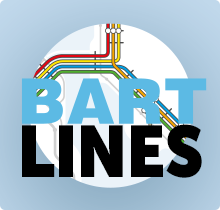It was a muggy morning at Cozy Cottage Nursing Home, and the arthritis was bothering me pretty bad. Hurt to move. Hurt to type. Still does, matter of fact. That's why, when they asked me for an ... [+]
Mostly she was alone in her room on the stroke floor, a pandemic barring visitors. She didn't want her family to see her like this, anyway, especially her sons and her elderly mother. It would only alarm them.
Nurses bustled in every two hours. "Hold your arms out in front of you. Touch your nose and then my finger. What's happening in this picture?" But when her words sloshed out and one side of her face tingled, she thrust the laminated picture back at the nurse, crying, "I can't do it. This isn't me."
This was all wrong. She'd always been healthy and fit. Now, although she could hold up her left arm and left leg, the right ones drifted down no matter how hard she tried to keep them in place. When she got up to go to the bathroom, two nurses held her elbows as she hobbled the ten feet to the toilet. Pulling down her underwear one-handed was arduous, and that made her cry again. The shock from her body not feeling like her own anymore kept her from sleeping the rest of the night. Instead, she lay there imagining all the things she would never be able to do again.
In the morning, the physical therapist, a super-caffeinated twenty-something bounced into her room, pushed a walker to the bedside, and announced that it was time to take a stroll in the hall. The walker frightened her. Her grandfather had used one at the end of his life. She stood and placed her left hand on it, but her right hand overshot the mark, flying off to the side. She glared at the PT, panicked. He turned, surprisingly calm.
"Do it slowly and concentrate on where you want your hand to go," he said, those words teaching her the most important lesson in her recovery. She would have to deliberately focus and set her intention before slowly making the movement she needed to relearn. Her next try was closer, and the third time her hand landed on the walker's rubber grip. She practiced the movement over and over so her body would remember.
[Damage to the basal ganglia cells may cause problems controlling speech, movement, and posture. A person with basal ganglia dysfunction may have difficulty starting, stopping, or sustaining movement.]
Taking her first step also surprised her. Her right leg dragged as if weighted with ballast. When she tried to move it forward, it swung wildly from the knee like a marionette with a broken string. It was exhausting to concentrate so deeply simply to take a single step. She walked ten paces that day before returning to her room. Over the next days, she lay in bed practicing the finger-tapping exercise the PT had given her: thumb to forefinger, thumb to middle finger, and so on. Once cleared to get out of bed unassisted, she stood with the walker in front of her and slowly paced to the window and back, again and again.
She laughed the first time she picked up a fork and tried to stab a piece of salad lettuce and bring it up and over. Like a baby bird, she opened her mouth expecting the food to arrive, but her hand stopped short of the target and she had to jut her head out to meet it. Writing her name was not as amusing, the lines growing infinitesimally smaller with each letter until the occupational therapist drew two long lines with dashes in between, just like a kindergarten writing primer. Somehow her brain knew how to make the letters fill the penciled boundaries.
[Recovery from most types of stroke is possible, especially when a consistent rehabilitation plan is followed. By exposing the brain to repetitive stimulus, you can help spark neuroplasticity to rewire the brain and regain lost functions.]
It was humbling and terrifying imagining this as her new life, no longer able to type a sentence or paint a portrait. The PT's voice played in her head. Move with intention. A Zen notion to be sure, and at that point the true path to her recuperation. In order to control her movements, she needed to think solely about what she wanted her body to do at that moment. Not her fear about the future. No longing for the past. She was like a toddler concentrating so hard on taking those first steps, face scrunched with effort, blocking out distractions, laser focused on doing only one thing at a time.
She felt as if she was a child again, learning those simple motions all over, missing more than hitting at first, food ending up in the wrong places, feeling impatience with her sluggish movements and frustration at not being in control of her body. But her brain was doing exactly what a child's brain does: forming, and in her case rerouting, those neural pathways that would allow her again to eat with utensils (chopsticks would take much longer), brush her hair, button clothing, fill in a crossword puzzle, and walk without holding on to something.
[The corona radiata is a bundle of nerve fibers in the brain that carry messages to and from the body.]
Now, years later, her radiant crown smoothly sending signals, she types on keyboards and paints her portraits, and she can walk many miles again. The other day, after eating sushi for dinner, she realized she wasn't struggling with the two sticks anymore. She hadn't even noticed the change, but she was delighted that her body was moving without her staring at her limbs and ordering them around. She is still in awe at her body's power to heal. Even if it demands she pay it more attention from time to time.
[FAST: Face drooping, Arm weakness, Speech difficulty, Time to call 911. RÁPIDO: Rostro caído, Alteración del equilibrio, Pérdida de fuerza, Impedimento visual, Dificultad para hablar, Obtenga ayuda rápido.]




